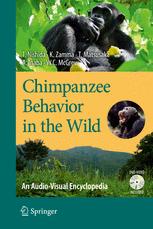

Most ebook files are in PDF format, so you can easily read them using various software such as Foxit Reader or directly on the Google Chrome browser.
Some ebook files are released by publishers in other formats such as .awz, .mobi, .epub, .fb2, etc. You may need to install specific software to read these formats on mobile/PC, such as Calibre.
Please read the tutorial at this link: https://ebookbell.com/faq
We offer FREE conversion to the popular formats you request; however, this may take some time. Therefore, right after payment, please email us, and we will try to provide the service as quickly as possible.
For some exceptional file formats or broken links (if any), please refrain from opening any disputes. Instead, email us first, and we will try to assist within a maximum of 6 hours.
EbookBell Team

5.0
48 reviewsWhere We Stand Field workers—scientists of animal (including human!) behavior in nature—have long been fascinated by wild chimpanzees. A person who once has studied wild chimpanzees will be eager to observe them again. A person who has studied them twice will make every effort to continue the study, unless prevented from doing so. In short, behavioral primatology is addictive! Many people, among them Jane Goodall, Richard Wrangham, and I, do not regret that they have dedicated their whole lives to the study of wild chimpanzees. This is because the apes’ behavior is always challenging: chimpanzees are cheerful, charming, playful, curious, beautiful, easygoing, generous, tolerant, and trustw- thy most of the time, but also are cautious, cunning, ugly, violent, ferocious, blo- thirsty, greedy, and disloyal at other times. We human beings share both the light and dark sides with our closest living relatives. For decades, we have documented huge across-population variation in behavior, as well as within-population variation. Cultural biology (now called cultural pri- tology), as proposed 60 years ago by Kinji Imanishi, recently has flourished.